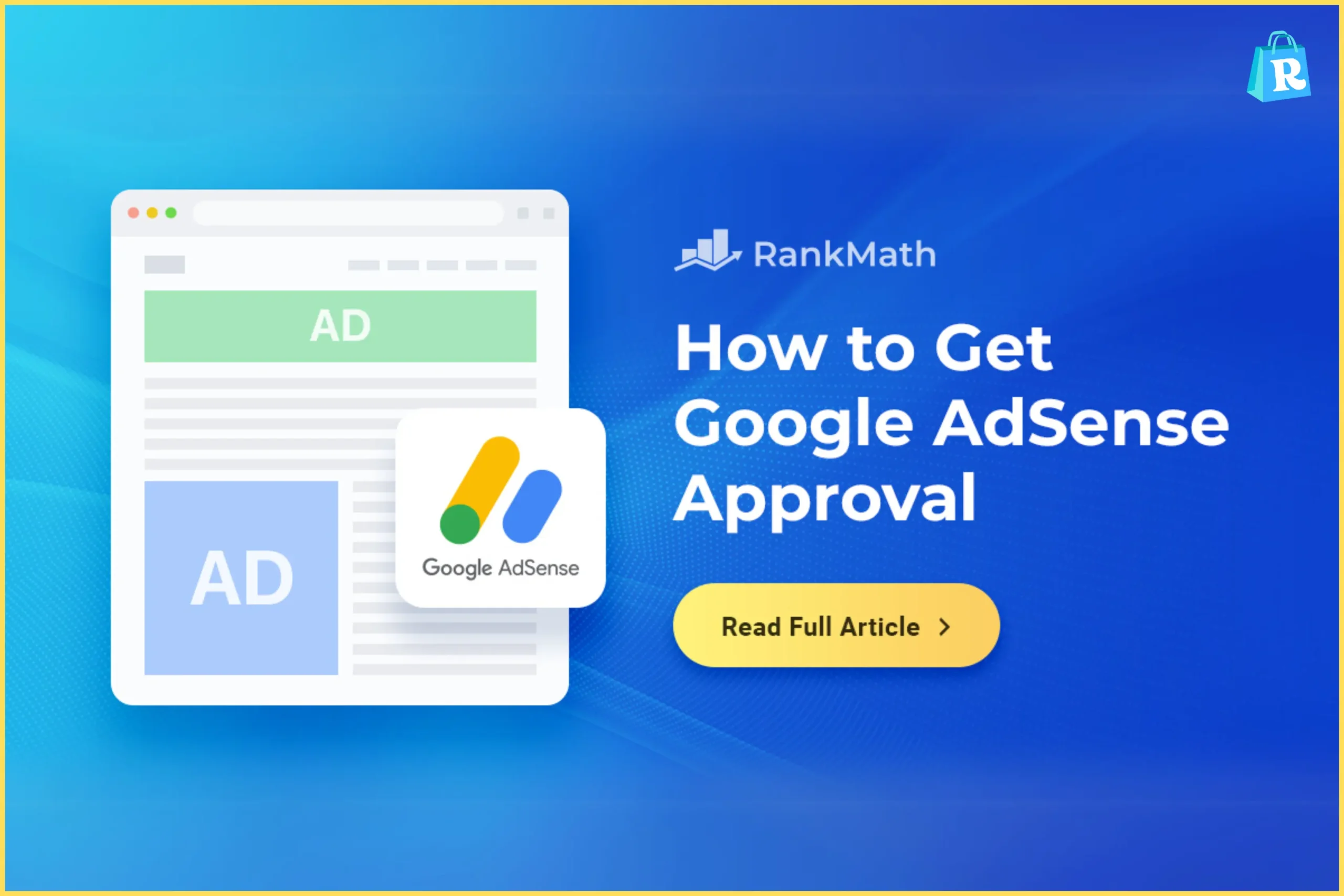If you’re a content creator or website owner, monetizing your platform with Google AdSense is often a top priority. However, the process of getting approval from AdSense can be daunting, especially for beginners. The stringent policies, hidden guidelines, and common misconceptions can cause unnecessary delays or even outright rejection.
Understanding exactly what Google looks for is the first step to success. With the right strategy, proper content, and some patience, getting AdSense approval becomes an achievable goal. This guide will walk you through each essential component, offer insights into what makes an application successful, and clarify how to set up your website for a quick and efficient approval process.
Understanding Google AdSense and Its Purpose
Google AdSense is a popular advertising program that enables website owners and bloggers to earn revenue by displaying targeted ads on their platforms. The program analyzes your content and audience to serve relevant ads, thereby offering a seamless advertising experience that doesn’t disrupt user engagement. Google shares a portion of the revenue generated from clicks or impressions, allowing publishers to monetize their traffic.
AdSense is appealing due to its ease of integration, automatic ad placements, and access to a vast pool of advertisers. But before you can start earning, you need to get approved—a process governed by strict policies aimed at maintaining ad quality and user experience.
Minimum Requirements Before Applying
Before you even think about submitting your AdSense application, there are some non-negotiable prerequisites. First, your website should have a top-level domain like .com, .net, or .org. Free domains and subdomains (such as those from Blogspot or WordPress.com) can be more difficult to get approved, although not impossible.
Your website must also be fully functional with a clear navigation system. It should contain multiple pages, including essential ones like About, Contact, Privacy Policy, and Terms of Service. These pages demonstrate professionalism and show that you’re serious about content creation. Google also wants to see original, high-quality content, ideally published over a span of several weeks or months.
Content Quality: The Backbone of Approval
The most important factor for AdSense approval is your content. Google prioritizes originality, depth, and usefulness. Articles should be at least 800 to 1,000 words, well-formatted, and free from grammatical errors. Avoid duplicate content or articles scraped from other websites.
Your content must also comply with Google’s content policies. Topics involving adult material, violence, drugs, or copyrighted media without proper licensing are immediate red flags. Write about topics you’re knowledgeable in and ensure that your tone is helpful, neutral, and informative.
Website Design and User Experience
An aesthetically pleasing and user-friendly website significantly increases your chances of approval. Clean layouts, fast load times, and mobile responsiveness are now more important than ever. Google wants its ads to be displayed in environments that enhance rather than hinder user engagement.
Also, make sure that your site is easy to navigate. Menus should be visible and intuitive, and internal links should work properly. Broken links or under-construction pages give the impression of an incomplete site, which is a common reason for disapproval.
Traffic: Does It Matter?
Contrary to popular belief, Google AdSense does not have a strict traffic requirement. However, having a steady flow of visitors can be beneficial. It shows Google that your content is attracting an audience and that your site is active. More importantly, your traffic should be organic. Buying traffic or using bots is a direct violation of AdSense policies and can result in a ban.
Even if you’re getting a few hundred visitors a month, that can be sufficient if your content is high quality and your website is well-organized. Focus on building value for users rather than chasing numbers.
Important Pages to Include
Certain pages signal to Google that your website is legitimate and trustworthy. These include:
- About Page: This gives visitors and Google an idea of who you are, your mission, and what your website offers.
- Contact Page: Showcasing a real method to contact you builds trust.
- Privacy Policy: This is crucial for compliance and informs users about data collection and usage.
- Terms of Service: Especially important if you’re offering products or services.
These pages don’t need to be long, but they must be present and easily accessible through your main navigation menu.
Avoiding Policy Violations
One of the most common reasons for rejection is policy violation. Google expects publishers to adhere strictly to its guidelines. This includes not only content but also website structure and visitor engagement methods.
Avoid using copyrighted images, music, or videos without permission. Steer clear of clickbait, misleading navigation, and any kind of manipulation to increase ad clicks. Google uses advanced tools to analyze user behavior, so transparency and ethical practices are essential.
AdSense Vs Affiliate Marketing
AdSense and affiliate marketing are two different monetization strategies. AdSense focuses on displaying ads for passive income, while affiliate marketing involves promoting products or services in exchange for a commission. Both can be effective, but AdSense is often seen as a starting point due to its passive nature.
You can use both simultaneously, provided they don’t interfere with user experience or violate AdSense policies. For instance, placing affiliate links naturally within content while using display ads in designated spaces can optimize both revenue streams.
Comparison Table: AdSense Vs Affiliate Marketing
| Feature | Google AdSense | Affiliate Marketing |
|---|---|---|
| Revenue Model | Cost per click (CPC) or CPM | Commission per sale or lead |
| Setup Complexity | Easy to integrate | Requires strategic content placement |
| Approval Process | Strict and policy-driven | Varies by program |
| Maintenance | Mostly passive | Needs continuous content and link updates |
| Revenue Potential | Moderate, depends on traffic | High, depends on conversions |
Key Features for AdSense Approval
Getting approved requires a balanced combination of content, compliance, and credibility. These are the key features to focus on:
- High-quality, original content across multiple blog posts or pages.
- Essential pages such as About, Contact, Privacy Policy, and Terms.
- A clean, responsive, and fast-loading website design.
- No broken links or under-construction sections.
- Organic traffic and ethical SEO practices.
Pros and Cons
Pros:
- Simple setup and integration with most platforms.
- Passive income potential once ads are live.
- Access to a vast advertiser network.
- Customizable ad formats and placements.
- Reliable payment and reporting system from Google.
Cons:
- Stringent approval process.
- Account can be suspended for violations.
- Revenue depends heavily on traffic volume.
- Ads may affect user experience if not placed well.
- Payout threshold may take time to reach for small sites.
FAQs
1. How long does it take to get approved by Google AdSense? Approval time can range from a few days to a couple of weeks. It largely depends on how complete and policy-compliant your website is.
2. Can I reapply if my AdSense application is rejected? Yes, you can reapply after fixing the issues mentioned in the rejection email. Ensure your site meets all the requirements before reapplying.
3. Do I need a lot of traffic to get AdSense approval? No, traffic is not a strict requirement. However, some organic traffic helps demonstrate site activity and content relevance.
4. Can I use AdSense on YouTube and my website simultaneously? Yes, you can use AdSense on both platforms as long as each account and channel complies with their respective policies.
5. What types of content are prohibited by AdSense? Content involving violence, adult themes, hate speech, and illegal activities are strictly prohibited. Always refer to Google’s content policies for the latest guidelines.
Conclusion
Securing Google AdSense approval is more about preparation and less about luck. If your website has valuable content, a clean design, and follows all the necessary guidelines, approval is a matter of time. Don’t rush the process; instead, use it as an opportunity to refine your site and build a solid foundation for monetization.
This guide outlines everything you need to know to get approved. From understanding the essentials and adhering to policies, to optimizing content and enhancing user experience, each step is crucial. Follow them meticulously, and you’ll be well on your way to turning your content into a revenue-generating platform.





